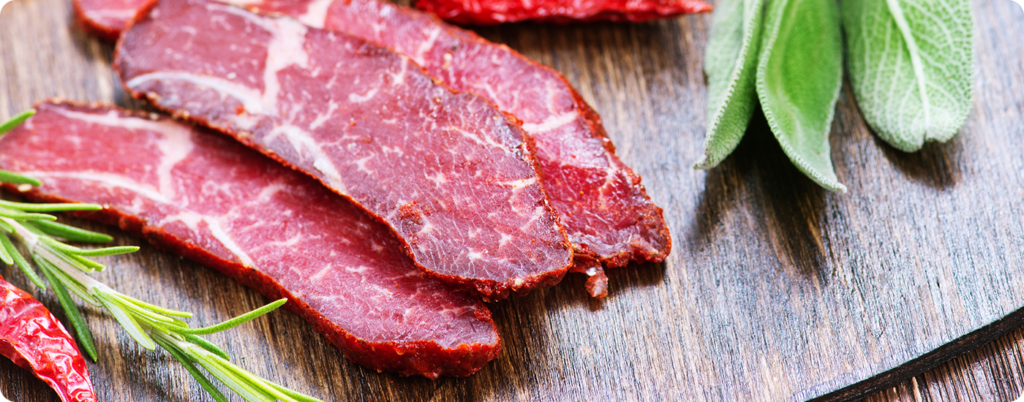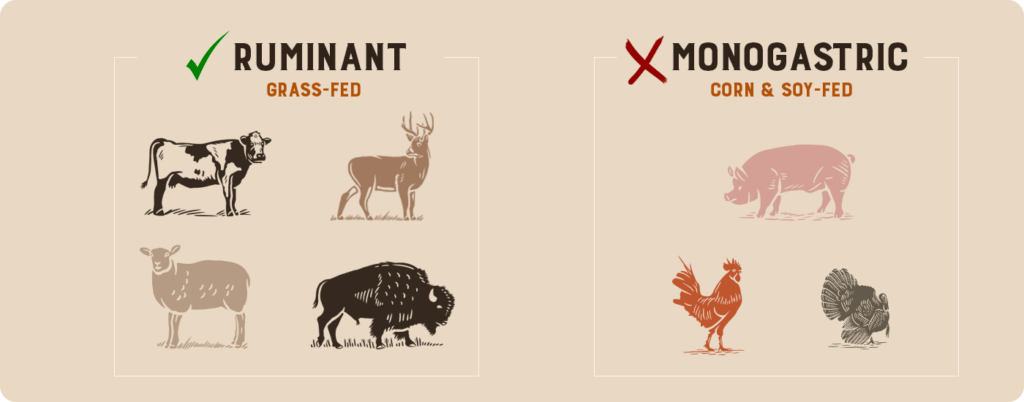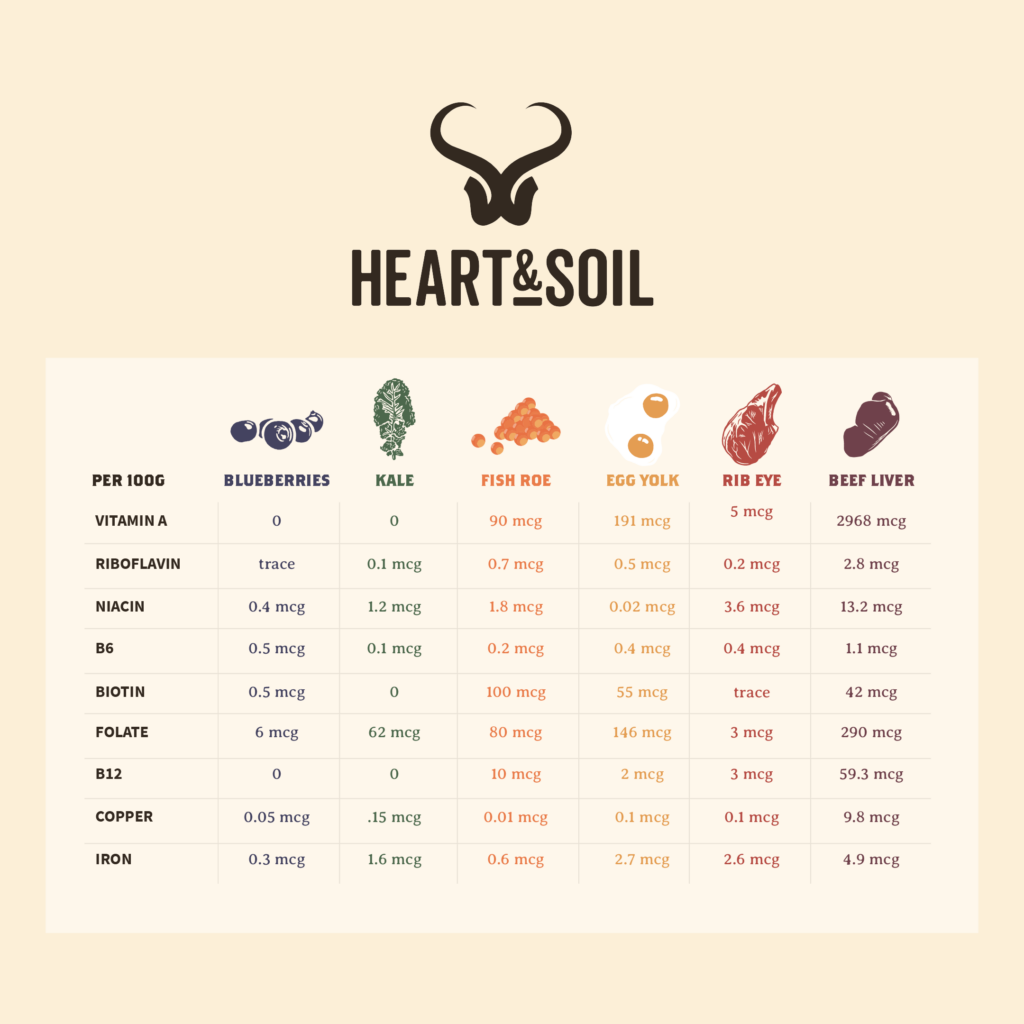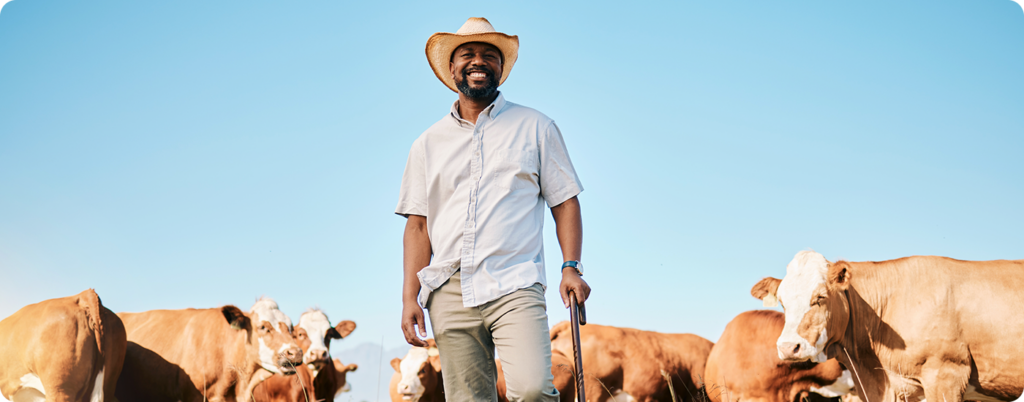PLEASE NOTE: The information in this blog is for educational purposes only. It is not a substitute for professional medical advice. Consult your healthcare provider if you’re seeking medical advice, diagnoses, or treatment.
Well-raised meat and organs are a key component of any animal-based diet.

But what exactly does well-raised meat and organs mean? And where can you find these essential animal foods?
If you’re new to the animal-based diet or unsatisfied with the meat from your local grocery store, you’re in the right place.
This article will outline what to look for when buying animal foods and over 12 suggestions to help find meat and organs for you and your family!
What to Look For When Buying Meat and Organs
We primarily suggest consuming meat and organs from grass-fed, grass-finished ruminant animals.
This ensures that the animals are raised on ancestrally consistent diets instead of grains like corn or soy.
Ruminant animals like cattle, bison, elk, deer, or lamb have four stomachs and unique microbes, which give them the ability to convert polyunsaturated fatty acids (PUFAs) into healthy saturated fats (1).

On the other hand, monogastric animals like pigs, chickens, turkeys, and ducks only have one stomach where their digestion occurs. Like humans, they cannot convert excess PUFAs into healthy saturated fats.
Chickens, in particular, are commonly fed corn, soy, and other inputs that can increase the amount of linoleic acid found in their meat or eggs (2).
If you’re familiar with Heart & Soil or our founder Paul Saladino, MD, you’ll know that we suggest avoiding seed oils as they’re rich in linoleic acid and connected to a wide variety of chronic diseases such as obesity.
Avoid meat from feedlots if possible. Feedlots are large-scale operations with the goal of mass-producing meat at minimal cost. The finished product in your grocery store is generally cheaper but often leads to sick animals, the use of antibiotics, genetically modified feed, and a terrible quality of life for the animals.
Our ancestors’ diets often included the organs of animals, but these are primarily discarded or ignored in modern diets. Organs such as the liver are loaded with crucial vitamins and minerals!
The term superfood gets thrown around constantly, but organs are generally left unmentioned. Here’s how beef liver stacks up against foods like kale and blueberries:

Not too shabby!
We always suggest consuming fresh organs if possible. If you don’t have access to them, don’t like the taste, or want to incorporate unique organs (such as the brain), consider checking out our options from Heart & Soil.
12+ Sources of Well-Raised Meat and Organs
If you’re looking for a supplier of meat and organs, look no further. Here are 12 resources to help keep your freezer stocked:
1. Local Ranchers

If you can, try to find meat and organs from a local rancher using a site like Eat Wild! You can buy products from them directly or at a nearby farmers market.
Shirt Tail Creek Farm is a local favorite if you’re in the Austin, TX area (like we are).
Based out of Blufton, Georgia, White Oak Pastures sells regeneratively raised beef, lamb, pork, and organs. They’re also a zero-waste farm, so whatever isn’t used is turned into products like candles, rugs, and leather accessories.
We interviewed the Founder, Will Harris, on Radical Health Radio episode 35 to discuss the consequences of factory farming and lab-grown meat.
Wild Pastures teams up with regenerative ranchers in the US to ship beef, chicken, pork, or seafood straight to your door.
With an emphasis on regenerative agriculture practices, Carter Country Meats offers subscription boxes, individual cuts of meat & organs, and even dog food!
You may have seen Force of Nature products in your local Whole Foods. Their animals are raised in wide-open spaces without antibiotics, hormones, or synthetic chemicals.
If you’re squeamish around the taste or smell of organ meats by themselves, try out one of their blends of ground beef (or bison), liver, and heart!
We spoke to Taylor Collins, Founder of White Oak Pastures, on episode 33 of Radical Health Radio to discuss regenerative farming, entrepreneurship, and more.
Based out of California, Primal Pastures provides 100% organic, pasture-raised, corn-and-soy-free meats.
7. Low-PUFA Pork & Chicken
If you enjoy more variety in your diet, there are numerous options, such as Nose to Tail, Apsey Farms, and Firebrand Meats, which sell corn and soy-free pork and chicken!
Perennial Pastures is based in San Diego, California, and partners with ranches in Texas and Montana. Their beef is raised without grains or chemicals and uses regenerative grazing to mimic nature.
Their offerings include lamb, steaks, seafood, organs, and ground beef, free from vaccines, GMOs, pesticides, and herbicides.
10. TruBeef Organic
TruBeef Organic is family-owned and North America’s first carbon-neutral meat company! Their beef and lamb options are 100% organic and free from antibiotics, GMOs, and added hormones.
11. Northstar Bison
This site is for the bison lovers! You can also find meat and organs from elk, lamb, and goats.
12. Wild Meadows
We didn’t forget about the Canadian folks! Wild Meadows provides grass-fed and finished beef, lamb, and bison. They also sell bones, organs, and low-histamine meats.
These are far from the only places to find meat and organs, but many Heart & Soil employees or animal-based dieters choose from these options!
Subscribe to future articles like this: